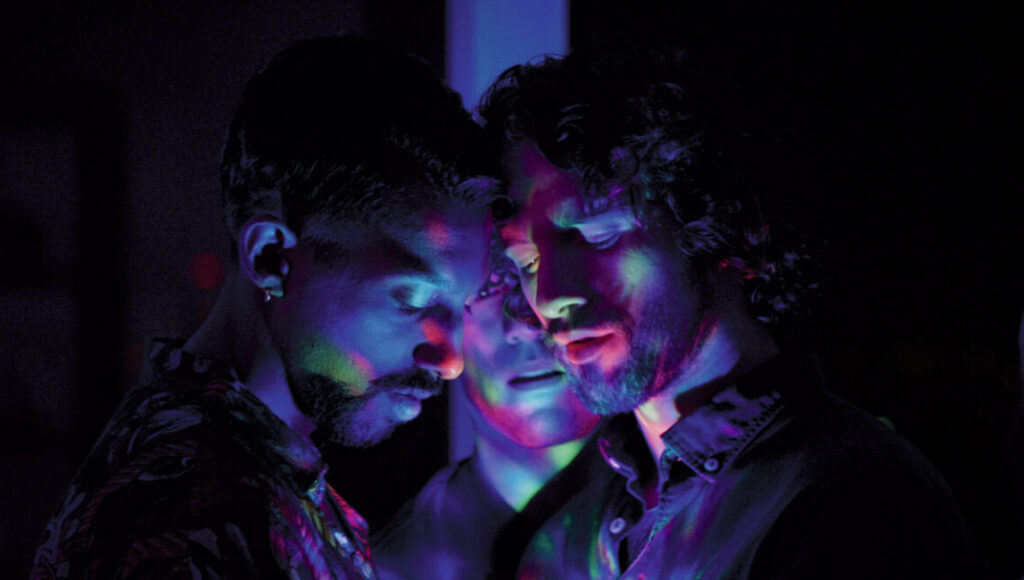The scene is set. By arrangement, five wronged strangers convene for dinner at a high-rise apartment in Paris, all with an axe to grind against the man they loved. Each person takes it in turn to confront him off-camera, and although the group spends the entire length of the runtime talking about this man, we never actually see him or hear mention of his name. It’s a gutsy premise for French directors and real-life couple Olivier Ducastel and Jacques Martineau, stalwarts of French queer cinema; here, they must rely on the budding rapport, between victims of emotional abuse, to build appeal and intrigue in what is essentially an askewed chamber piece. For the most part, Don’t Look Down succeeds in that regard; while less thoughtful than compatriot Patrice Chéreau’s similarly elegiac work Those Who Love Me Can Take the Train, which is a cinematic milestone in queer catharsis, this film is at least as refreshingly frank about sexuality, as the subjects perversely choose to relate to each other through their sexual exploits and fantasies.
A claustrophobic, erotically-charged experience, Don’t Look Down is laden with the sort of psychedelic cinematography of a Nicholas Winding Refn picture, aptly capturing the mood of vengeful, broken exes, the most captivating of which is debutante actress Manika Auxire. Whether that translates to the kind of emotional punch Ducastel and Martineau want from their sorrowful finale is another matter, as not all of the characters emerge as sympathetic people — allowing some of them to give voice to their insecurities can occasionally feel more like an invitation for wallowing than any deepening of character. And yet, Don’t Look Down remains a unique vision, and benefits deeply from its eerie evocation of the damage relationships can do.
Published as part of London Film Festival 2019 | Dispatch 1.


Comments are closed.